Navigating Car Accident Reports: A Guide
In the aftermath of a car accident, the importance of a meticulously documented police report cannot be overstated. This document not only provides a factual account of the events but also serves as a pivotal piece of evidence in the legal and insurance claim processes. The steps to accurately report an incident, secure a copy of the police report, and comprehend its contents are fraught with complexities that can greatly impact the outcome of claims and legal proceedings. As we explore the intricacies of handling car accident reports, one must consider the potential challenges and nuances that could influence the resolution of their case.

Key Takeaways
- Obtain a police report at the scene by providing details without admitting fault.
- Request a copy of the report from local law enforcement or your insurance company.
- Police reports include both factual information and the officer's opinion on fault.
- Insurance companies use police reports for initial accident assessments but conduct their own investigations.
Understanding Police Reports
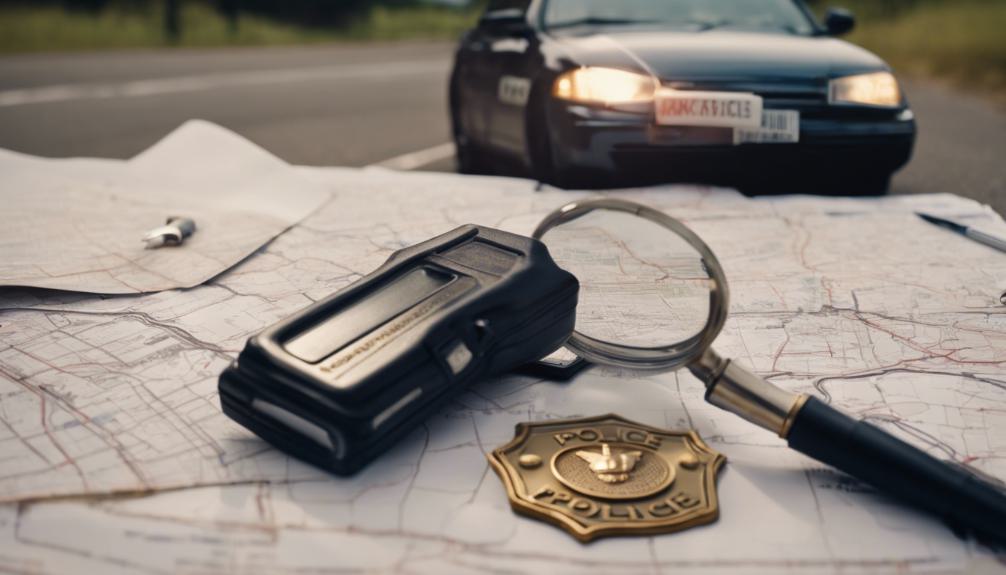
A car accident police report is a thorough document prepared by law enforcement officers at the scene of a car accident, detailing the incident's circumstances, involved parties' statements, and any witness accounts. This document serves as a foundational piece of evidence in understanding the dynamics of the accident, including the location, time, and conditions under which the event occurred. The report encompasses factual data such as vehicle descriptions, damage assessments, and the presence of any traffic violations or infractions. Additionally, it provides a narrative section where officers can include observations and any preliminary determinations of fault. The compilation of these details makes the police report an indispensable tool for all stakeholders, offering a structured overview of the accident to facilitate subsequent evaluations and decisions.
Importance in Legal Protection
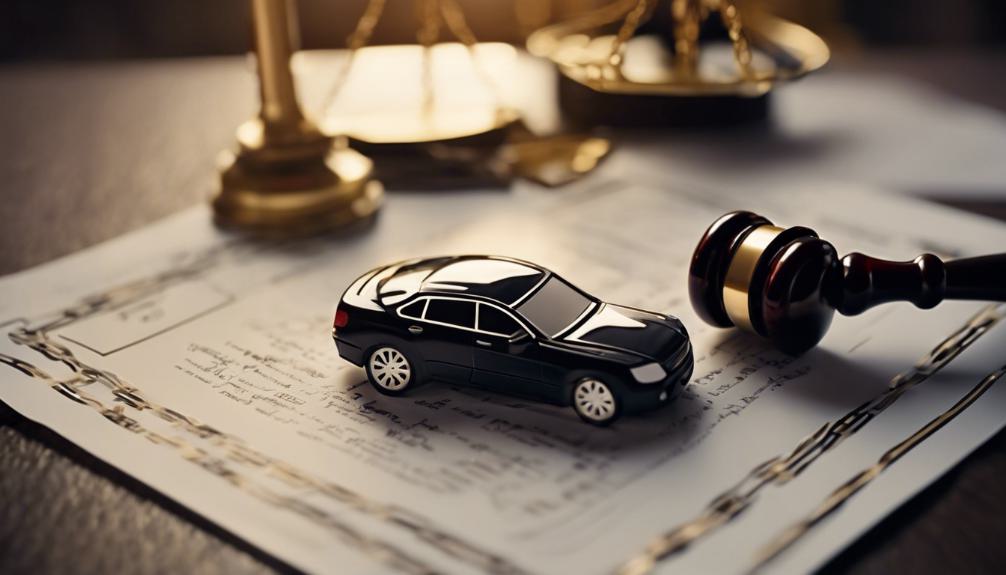
Given the potential for disputes following a car accident, police reports serve as pivotal documents for legal protection, offering an authoritative account of events to safeguard the interests of all parties involved. These reports encapsulate critical details such as the involved parties' statements, witness accounts, and an officer's assessment of the scene, which collectively contribute to a thorough understanding of the incident. This objective record becomes indispensable in legal arenas, where it can decisively influence the outcome of claims and litigations. For individuals seeking compensation or defending against allegations, the police report provides a foundational basis to assert their stance. Its role in establishing fault ensures that legal proceedings are grounded in documented evidence, thereby enhancing the fairness and efficacy of judicial resolutions.
Steps to Obtain a Report
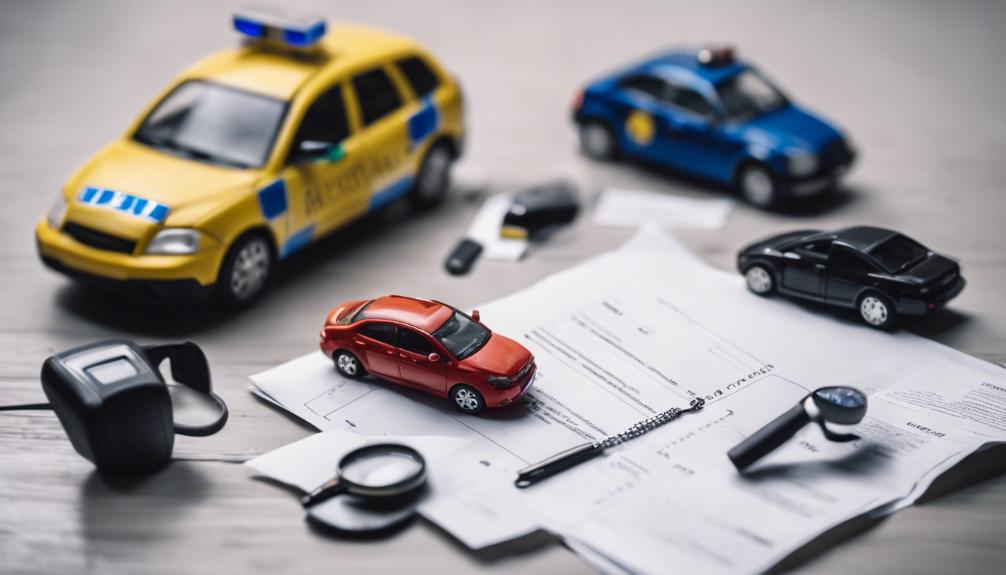
Obtaining a police report after a car accident involves several key steps that begin at the scene of the incident and extend through interactions with law enforcement agencies. Initially, make sure law enforcement is notified to come to the accident scene, as their report is essential for legal and insurance processes. At the scene, gather the responding officers' names, badge numbers, and the report number, which will be important for future reference. Following the accident, contact the local law enforcement agency that responded to the incident to request a copy of the report. Providing the report number will streamline this process. If you're without the report number, be ready to supply detailed information about the accident to aid in locating the report. Remember, obtaining this report is necessary for your insurance claim and any legal protection you may need.
Initial Actions Post-Accident
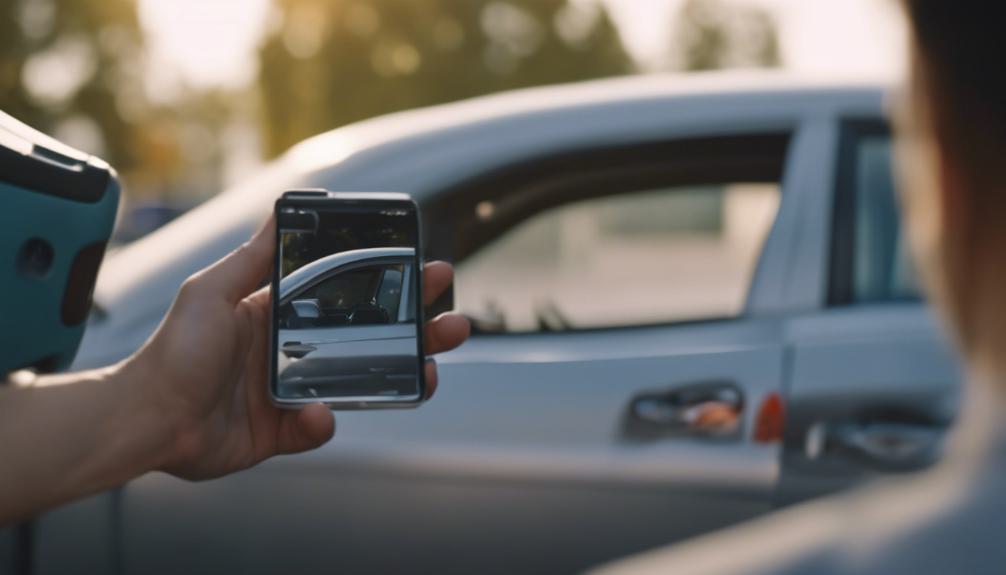
Immediately after a car accident, guaranteeing the safety of all parties involved is the paramount initial action. First, assess yourself and others for injuries, calling emergency medical services if necessary. If the vehicles pose a safety hazard and can be moved, relocate them to a safe area away from traffic to prevent further accidents. Activate your vehicle's hazard lights to alert other drivers. Next, gather essential information from all parties involved, including names, contact details, insurance information, and vehicle descriptions. Documenting the scene with photos can be invaluable, capturing details such as vehicle positions, visible damages, and any relevant road conditions or signs. This preparatory step ensures you have the necessary information for insurance claims and legal proceedings, setting a foundation for a thorough accident report.
Interacting With Law Enforcement
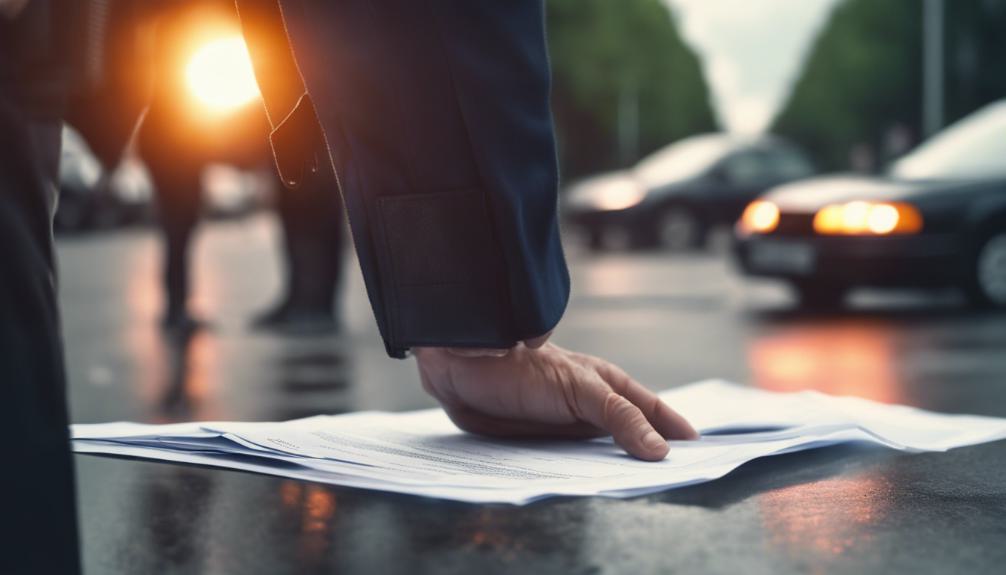
When interacting with law enforcement after a car accident, it is essential to remain calm and provide an accurate account of the incident without assigning blame. Communicating effectively with officers is important; your cooperation can greatly impact the smooth handling of the situation. Make sure you clearly articulate the sequence of events as they happened, sticking to facts rather than opinions or assumptions. It's also important to follow all instructions given by the responding officers and to politely ask any questions you may have about the process. Remember to obtain the officers' names, badge numbers, and the report number for your records. This information is crucial for future reference, especially when dealing with insurance claims or any legal matters that might arise.
Key Components of a Report
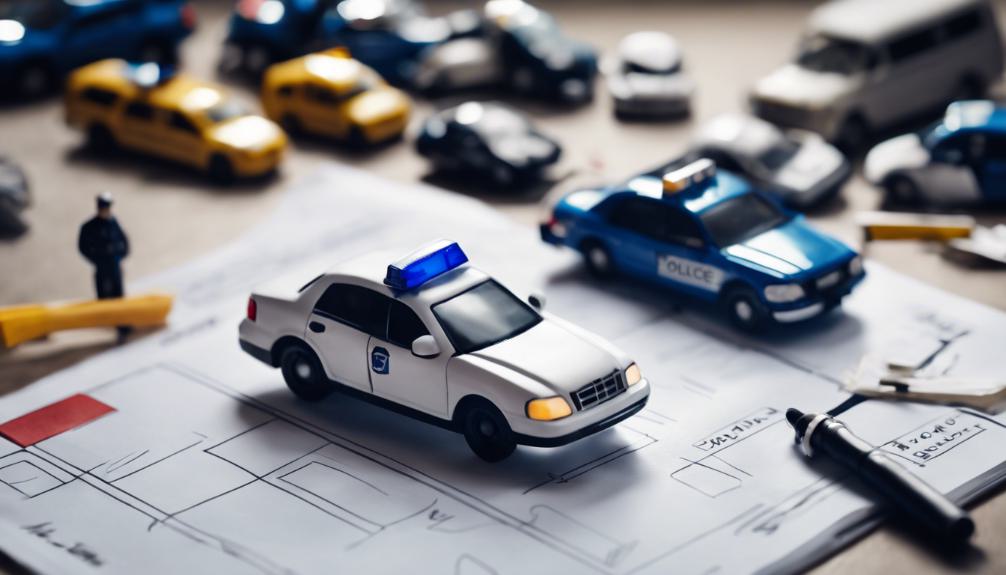
Understanding the key components of a police report is fundamental in managing the aftermath of a car accident effectively. A detailed police report includes essential details such as the date, time, and location of the accident, as well as the identification of all parties involved, including witnesses. It meticulously documents the accident scene, including road conditions, weather, and any obstructions or signs. Vehicle information, such as make, model, registration, and insurance details, are also captured alongside a narrative of the event from the officer's perspective. This narrative often includes diagrams or sketches of the accident scene. These elements are important for insurance claims and legal proceedings, providing a factual basis for determining responsibility and evaluating damages.
Facts Vs. Officer Opinions
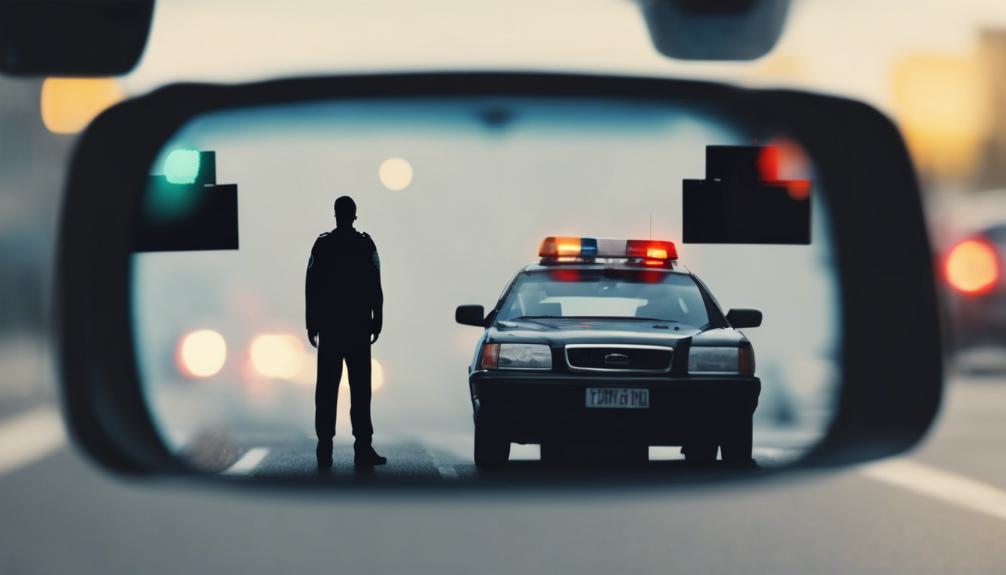
Distinguishing between factual information and the opinions of the officer is important in interpreting a car accident police report. Factual information includes objective data such as the date, time, location of the accident, descriptions of the vehicles involved, and any observable physical evidence at the scene. This data is vital as it provides a concrete basis for understanding the circumstances surrounding the accident. On the other hand, the officer's opinions, which may include assessments of driving behavior or preliminary fault assignments, are subjective interpretations based on their professional judgment and experience. While these insights can be valuable, they are not definitive and may be influenced by various factors. When reviewing a police report, it is essential to critically assess both the factual content and the officer's opinions to form a balanced understanding of the event.
Fault Determination Explained
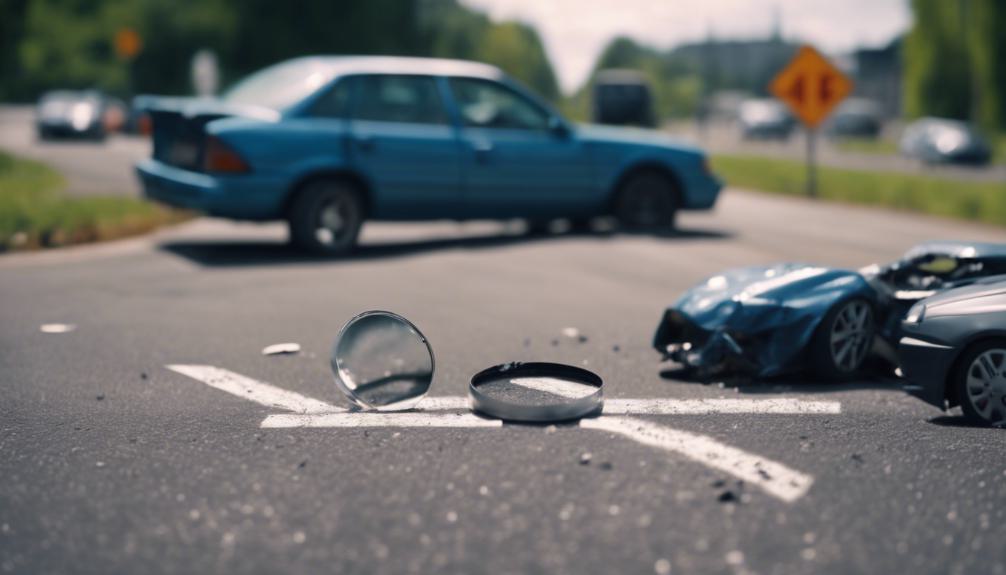
Determining fault in a car accident involves analyzing evidence, witness statements, and police reports to assign responsibility for the incident. This process is vital for both legal and insurance purposes, as it influences the outcome of claims and the potential for legal action. The police report plays a key role in this determination, offering a third-party account of the accident, which includes both factual data and the responding officer's opinions. Insurance companies, while conducting their own investigations, heavily rely on these reports to guide their fault determinations. However, it's crucial to mention that the police report is not the sole factor in deciding fault. Insurance adjusters consider additional evidence, such as physical damage, photos from the scene, and any available video footage, to make a thorough assessment of responsibility.
Requesting Your Report Copy
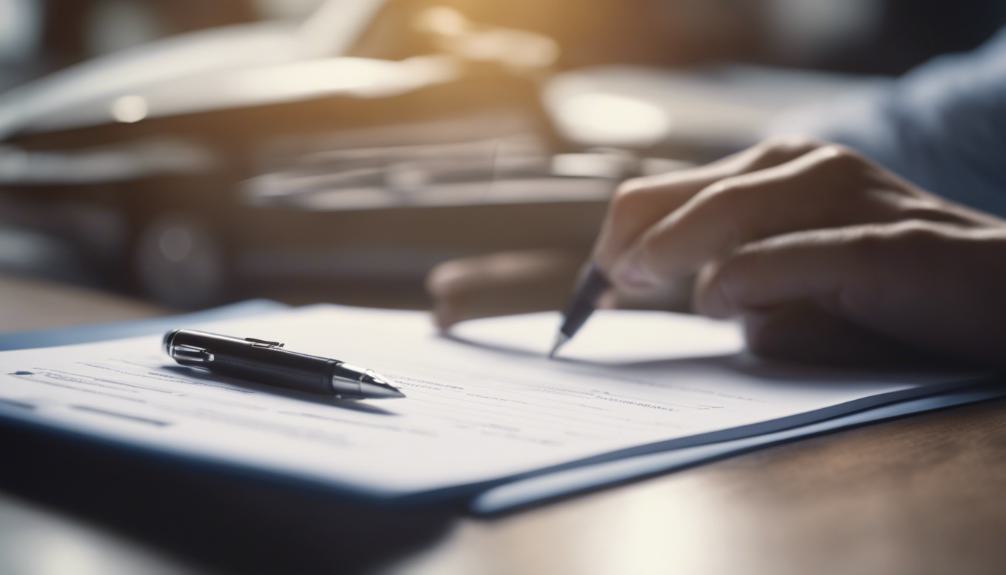
After a car accident, obtaining a copy of the police report is a critical step in managing the aftermath effectively. This document is pivotal for insurance claims, legal protection, and understanding the event's details. To request your report, first reach out to the local law enforcement agency that responded to the accident. Providing the report number can greatly speed up the process. If the report number is unknown, be prepared to offer detailed information about the incident, such as the date, time, and location, to assist in locating the report. While obtaining the report directly from law enforcement is standard, your insurance company may also obtain a copy, which they can provide to you. Remember, the availability of the report might take a few weeks post-accident.
Navigating Through Bureaucracy

Obtaining a car accident police report often involves maneuvering through complex bureaucratic processes that can vary greatly from one jurisdiction to another. Each local law enforcement agency has its own protocol for filing and releasing these reports, making it essential for individuals to understand the specific requirements of their area. Typically, this process requires submitting a formal request, which may need to include personal identification, details of the accident, and, sometimes, a fee. The waiting period for the completion and release of the report can also differ, often taking several weeks. It's important for individuals to be proactive and persistent, following up with the law enforcement office as needed. Understanding these bureaucratic hurdles in advance can streamline the process, making it less intimidating and more efficient.
Insurance Companies' Role
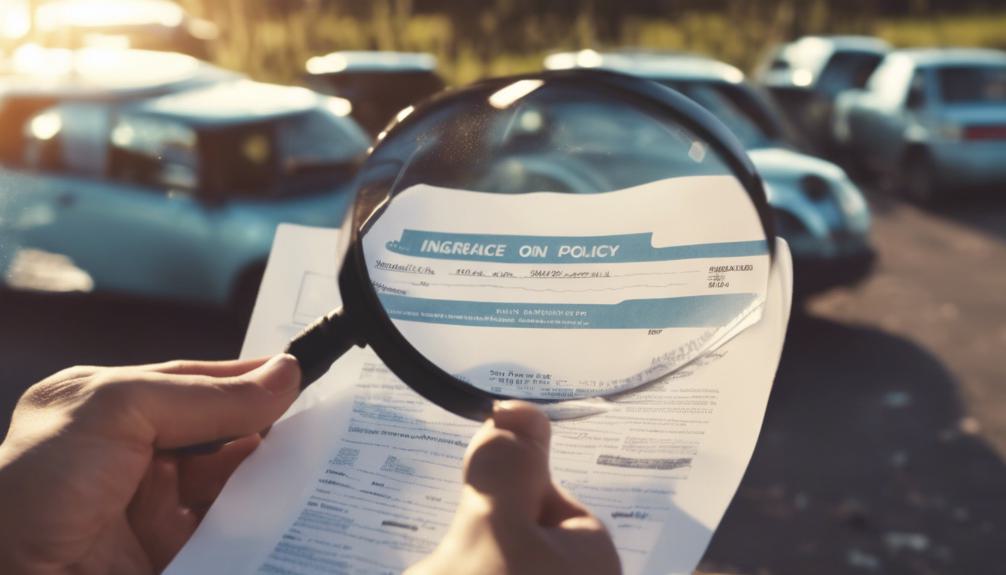
Insurance companies play a pivotal role in the aftermath of a car accident, relying heavily on police reports to assess claims and determine fault. When an accident occurs, one of the first steps for many drivers is to notify their insurance provider, which then begins on an investigation process. This process often starts with a review of the police report. These reports provide a third-party account of the incident, including details on the circumstances surrounding the accident, which can be essential for insurers. Insurance companies use this information to make initial fault determinations, which are key to processing claims efficiently. While insurers conduct their own investigations, the police report serves as a foundational document, guiding the direction of these inquiries and helping to resolve disputes between involved parties.
Impact on Insurance Claims
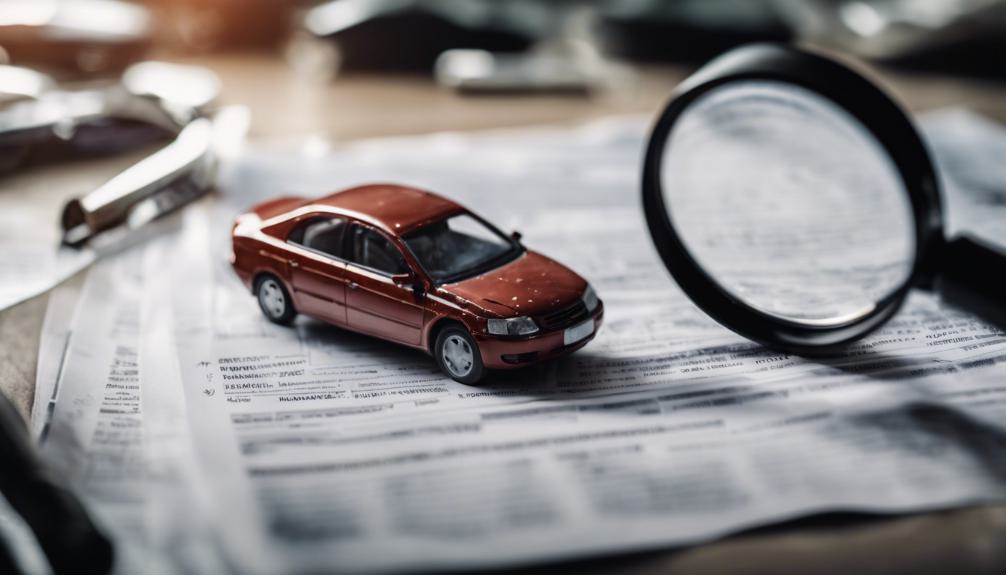
Understanding the role of police reports in the initial investigation, it's imperative to examine how these documents directly influence the outcome of insurance claims. The information contained within a police report, including details of the accident scene, statements from involved parties, and the officer's opinion on fault, serves as a cornerstone for insurance companies when evaluating claims. These reports provide an objective overview that aids insurers in determining liability and the extent of damages, which in turn influences the decision on claim approvals or denials. Given the weight of police reports in the claim evaluation process, their accuracy and thoroughness can greatly impact the financial resolution for the parties involved, underscoring their importance in the post-accident procedural landscape.
Resolving Discrepancies

When discrepancies arise between a police report and an insurance company's findings, it's important to initiate a thorough review process to reconcile these differences. First, carefully compare the police report against the insurer's assessment to identify specific areas of disagreement. Next, gather additional evidence that may support your position, such as photographs from the accident scene, witness statements, or expert testimonies. Present this information to your insurance company, requesting a reevaluation of their findings. If disagreements persist, consider seeking legal counsel to advocate on your behalf. Remember, clear, factual evidence is key to resolving discrepancies effectively. This process underscores the importance of detailed documentation and proactive communication in ensuring that all parties reach an equitable conclusion.
Frequently Asked Questions
How Do I Amend a Mistake in the Police Report if I Notice an Error After It Has Been Finalized?**
To amend an error in a finalized police report, contact the law enforcement agency that issued the report. Provide evidence of the mistake and request a correction. Follow their procedure for report amendments.
Can a Car Accident Police Report Be Used as Evidence in Court if the Case Goes to Trial?**
Yes, a car accident police report can be utilized as evidence in court if the case proceeds to trial. It provides critical information and may influence the determination of fault and liability assessments.
What Are My Options if the Other Party Involved in the Accident Refuses to Cooperate With the Police During the Report?**
If the other party involved in the accident refuses to cooperate with the police, you should guarantee your statement is recorded, note any witness accounts, and consult with your insurance provider and a legal advisor.
How Do I Handle a Situation Where the Police Officer's Determination of Fault Seems Biased or Incorrect Based on the Evidence?**
If you believe a police officer's fault determination is biased or incorrect, it is advisable to gather additional evidence, consult with a legal professional, and potentially file a formal complaint with the police department.
Is There a Statute of Limitations on How Long After an Accident I Can Request a Police Report, and Does This Vary by State or Jurisdiction?**
The statute of limitations for requesting a police report post-accident varies by state or jurisdiction. It is important to check local laws for specific timelines, as these dictate the period within which you must act.
Conclusion
To sum up, car accident police reports are essential documents that play a pivotal role in the aftermath of vehicular incidents. They not only serve as official records of the event but also play a significant role in influencing the process of legal protection, insurance claims, and liability determinations. Understanding how to obtain and interpret these reports is essential for involved parties to navigate through the complexities of bureaucracy and insurance procedures effectively. Mastery of this knowledge aids in ensuring that the outcomes of such incidents are addressed fairly and efficiently.

This post has been generated by AI and was not reviewed by editors. This is Not legal advice. Please consult with an attorney.




